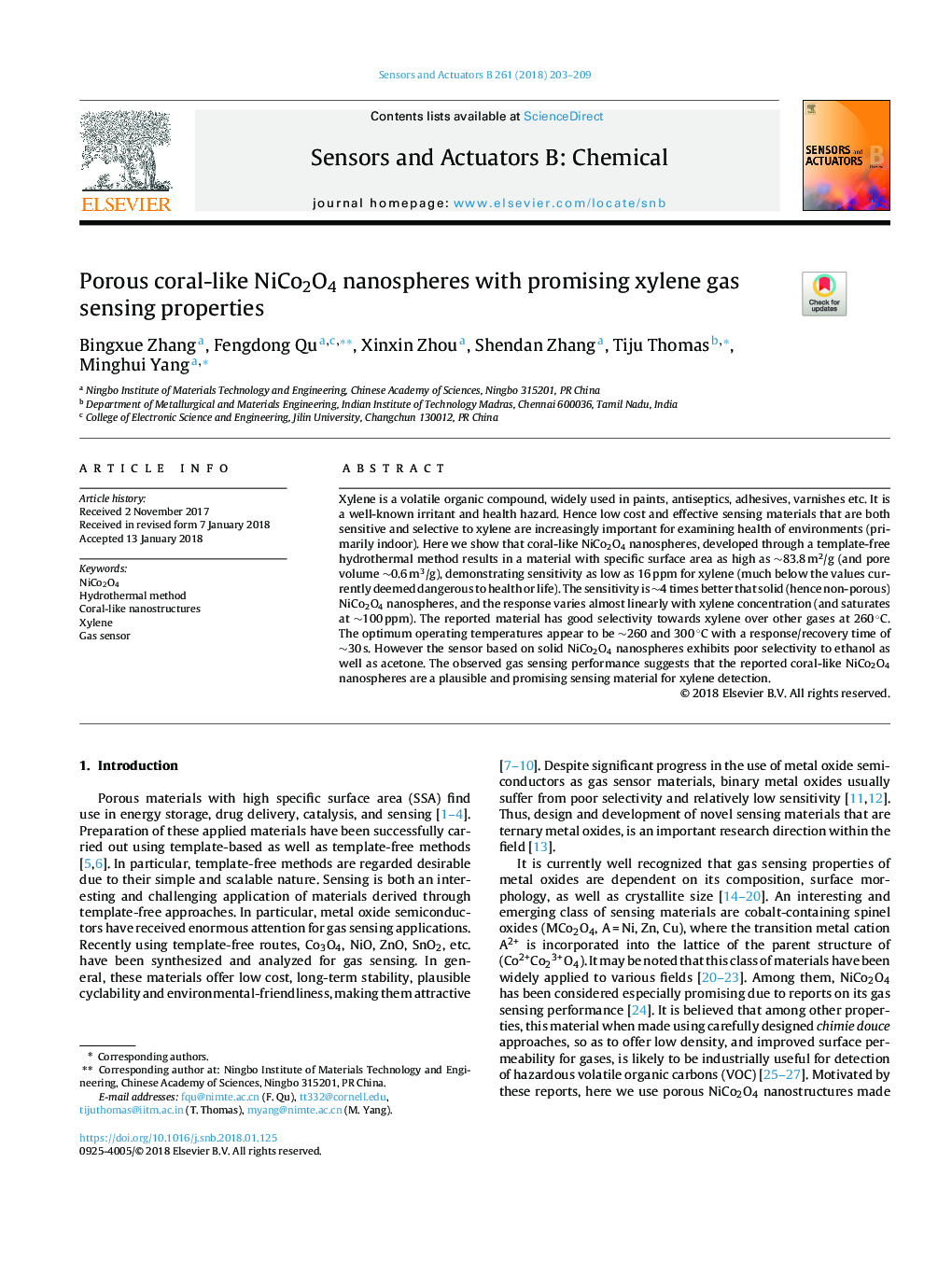| Article ID | Journal | Published Year | Pages | File Type |
|---|---|---|---|---|
| 7140503 | Sensors and Actuators B: Chemical | 2018 | 7 Pages |
Abstract
Xylene is a volatile organic compound, widely used in paints, antiseptics, adhesives, varnishes etc. It is a well-known irritant and health hazard. Hence low cost and effective sensing materials that are both sensitive and selective to xylene are increasingly important for examining health of environments (primarily indoor). Here we show that coral-like NiCo2O4 nanospheres, developed through a template-free hydrothermal method results in a material with specific surface area as high as â¼83.8â¯m2/g (and pore volume â¼0.6â¯m3/g), demonstrating sensitivity as low as 16â¯ppm for xylene (much below the values currently deemed dangerous to health or life). The sensitivity is â¼4 times better that solid (hence non-porous) NiCo2O4 nanospheres, and the response varies almost linearly with xylene concentration (and saturates at â¼100â¯ppm). The reported material has good selectivity towards xylene over other gases at 260â¯Â°C. The optimum operating temperatures appear to be â¼260 and 300â¯Â°C with a response/recovery time of â¼30â¯s. However the sensor based on solid NiCo2O4 nanospheres exhibits poor selectivity to ethanol as well as acetone. The observed gas sensing performance suggests that the reported coral-like NiCo2O4 nanospheres are a plausible and promising sensing material for xylene detection.
Related Topics
Physical Sciences and Engineering
Chemistry
Analytical Chemistry
Authors
Bingxue Zhang, Fengdong Qu, Xinxin Zhou, Shendan Zhang, Tiju Thomas, Minghui Yang,
